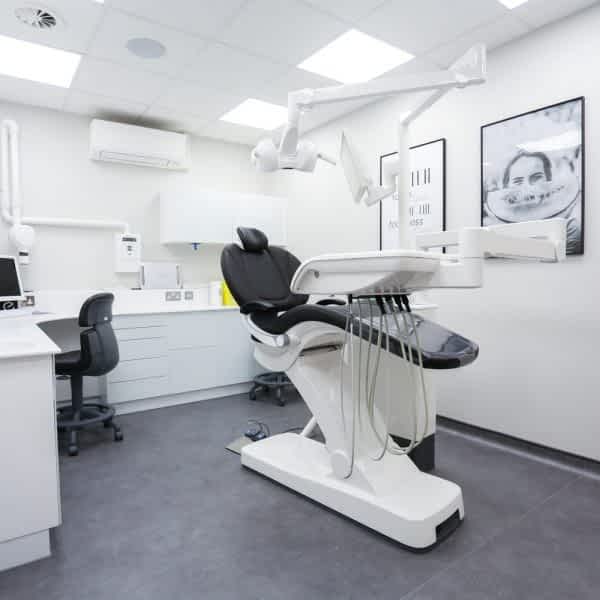What are Impacted Wisdom Teeth?

Wisdom teeth are really a relic from the days of old. Whilst they served well for our genetic ancestors who needed to grind tough plants, roots and uncooked meats, these 3rd molars serve no use to modern day man.
Most people will develop 4 wisdom teeth in each corner of their jaw between the ages of 17-25. They can hide discreetly under the gums without detection for years, but can sadly create chaos when they eventually decide to emerge (erupt). This is where the term ‘Impacted Wisdom Teeth’ comes into play. An impacted wisdom tooth is one which lacks the space it needs to ‘erupt’ and therefore surfaces at an awkward angle, becomes completely stuck or only emerges partially.
Not only is this problematic for the arrival of the useless new tooth, it starts to put a huge amount of pressure on the rest of our teeth and our oral health.
If you have wisdom teeth (and not everyone does) more often than not, they need to be removed. The truth is you are luckier not to have them! You could even be accused of being more highly evolved by not having wisdom teeth as quite frankly their purpose became extinct back in the stone ages.
There is nothing you can do to stop impacted wisdom teeth, but to avoid unnecessary suffering it’s important to watch out for the warning signs.
Do you have Impacted Wisdom Teeth?
Impacted Wisdom Teeth complications can present themselves as all manner of symptoms that you may never have thought related to their existence. Here’s what to watch out for:
Stiff Jaw
You may find yourself waking up one day with difficulty opening your mouth, that seems to have come from nowhere. This is a common sign that your wisdom are trying to make an appearance and are pushing against the neighbouring teeth making this area stiff, sore and uncomfortable to move.
Red Swollen Gums
This can often be mistaken or brushed off as over-enthusiastic brushing or a lapse in your oral hygiene routines, but if a wisdom tooth is trying to erupt it can cause inflammation to the gum area before it breaks through. Better to get it checked before the symptoms accelerate.
Bleeding Gums
Yes, bleeding gums can be attributed to gingivitis but they can also indicate that a wisdom tooth is partially erupted and starting to emerge, splitting the gum area. This will probably follow a period of swelling, so you can be assured that it is definitely trying to rear its head whether you like it or not.
Swelling in the face
Unfortunately, this is a sign that there may be an underlying infection forming from the recent activity of a wisdom tooth. You may not have noticed the change inside your mouth, but in those hard to reach areas, under increasing pressure from newly emerging teeth it’s easy for food and debris to become stuck. This creates a breeding ground for bacteria and infection.
Unpleasant taste
If you have noticed an unpleasant taste in your mouth, this could be related to impacted wisdom teeth that has caused an infection or even an abscess. It could also be as a result of food debris rotting in this new compacted area or a cavity developing as a result. Get this checked out as soon as possible.
Bad Breath
Closely related to the unpleasant taste. If you have suddenly become aware of nasty breath smells that cannot be attributed to a change in diet or something you have consumed there may be a more sinister explanation. Rather than cover it up in a minty disguise hoping it will go away, consult a professional.
Toothache and Pain
You may just feel like you have a normal toothache but can’t quite put your finger, or tongue on where it is coming from. This could be because it’s origin is a tooth that hasn’t broken the gum yet, or it could be because a neighbouring tooth has developed a cavity due to this space invader. It’s likely to get worse before it gets better. Find out what it is!
Infection
Do you feel under the weather? Have you been suffering from a fever, headaches or lethargy? You might not have noticed anything untoward happening in your mouth, but an infection may have crept into your body via your teeth and gums making you feel generally unwell.
Sensitivity to hot/cold
Own up! Have you been quietly avoiding eating and drinking in a certain corner of your mouth? If you have been ignoring this for a while, you may find that you have been allowing plaque to slowly eat away in a newly formed nook. An emerging wisdom tooth can make certain areas impossible to brush and eventually a cavity can form resulting in this heightened sensitivity.
Pressure sensation
The modern-day homo sapien has evolved to require much smaller jaws and as a result, we just don’t have space for wisdom teeth anymore. Trying to squeeze 32 teeth into a mouth that really only comfortably fits 28 is like squeezing on the tube during rush hour. Teeth crowding can result in an uncomfortable pressure and aching sensation that can affect a whole jawline.
How to deal with Impacted Wisdom Teeth?
If you are already in a regular check-up routine with your dentist, it is more than likely they will know about your Impacted Wisdom Teeth way before you do.
The standard procedure for most dental clinic registrations is to conduct a full revision of the mouth on your first appointment, which will include taking detailed X-Rays. This gives your dentist a complete overview of your oral health both above and below the gums. These scans will easily identify if you have wisdom teeth, even if they are not visible. They will also show how close to erupting they are and what angle they are approaching from.
In an ideal world, this is the best possible way of spotting potentially impacted wisdom teeth. If it is causing you no bother, then a routine clean and hygiene check will probably be enough to avoid the onset of cavities or infection. If however, the angle that the tooth is growing at is looking suspicious or you’ve had a niggling feeling in that area of your mouth, the likelihood is that the tooth should be removed.
At Banning Dental Group clinics, we have specialist oral surgeons who are experts in removing impacted wisdom teeth. Even the most complex cases of tooth extraction can be dealt with comfortably and easily.
Does removing impacted wisdom teeth hurt?
There is a lot of scaremongering surrounding the extraction of impacted wisdom teeth. We can wholeheartedly assure you that the pain and discomfort that occurs with the onset of wisdom tooth complications is far more offensive than the removal of the tooth itself. In fact, most patients breathe a huge sigh of relief when the tooth is gone.
Impacted wisdom teeth pain can reach the stage of debilitation that can impede you from performing even the most simple everyday tasks. Once it reaches this stage it’s not uncommon for sufferers to want to pull their own teeth out!
The reality of teeth extraction in modern society is that you really won’t feel a thing. With sophisticated anaesthetic and sedation and pain-free injections, the extraction is a walk in the park compared to the preceding suffering. A slightly tender gum following the removal is also a tiny price to pay in the grand scheme of things.
At the end of the day, we don’t want anyone to have to reach the point of requiring emergency treatment due to problematic, impacted wisdom teeth. For your own sake, don’t let it get to this stage. Book yourself in for a routine check and save yourself from suffering at the hands of these dastardly devils.








